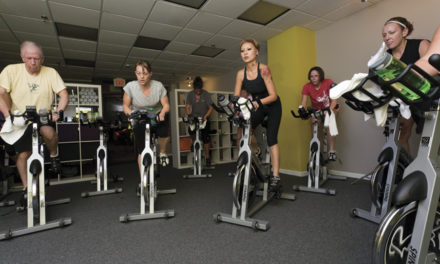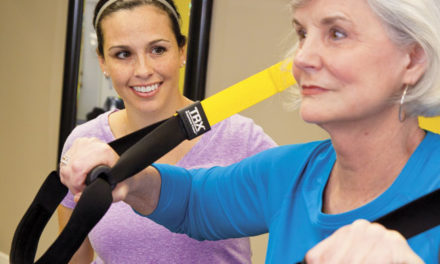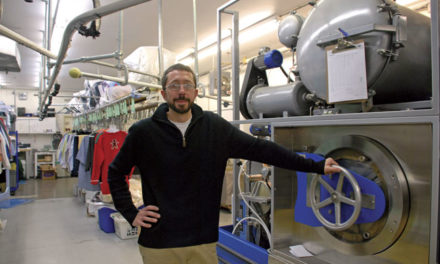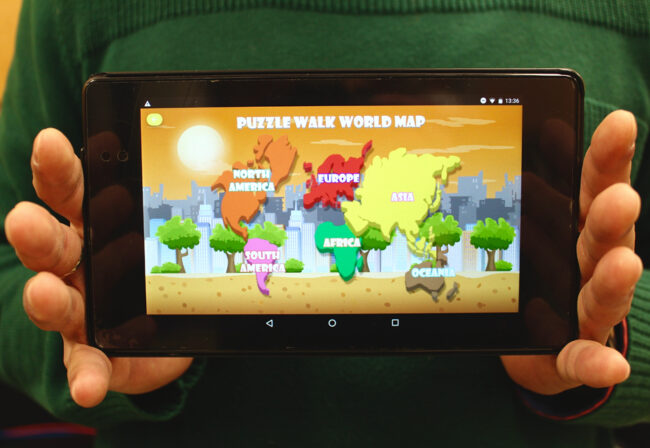
by NICOLE MCPHEETERS
Limited research shows that, due to sedentary lifestyles, health disorders such as Type 2 diabetes, obesity, and hypertension are prevalent in those who experience autism spectrum disorder (ASD). So when doctoral candidate Daehyoung Lee enrolled in an Indiana University Luddy School of Informatics, Computing, and Engineering course that asked him to create an app prototype targeted to a specific population, his specialization in disability studies sparked an idea.
“I’ve been very interested in technology use for physical health intervention and thought, ‘Why not use a mobile health app?’” Lee says.
Lee says commercially available fitness apps require users to be self-motivated and self-supporting, attributes often lacking in the ASD population. Mental health is also a concern for those on the autism spectrum, and many times this is an obstacle that comes at a cost.
“Mental health issues are very prevalent in this population, and there are no affordable treatment options,” Lee says. “I wanted to develop an intervention that could target mental health and physical health at the same time, that is more affordable compared to other conventional intervention options.”
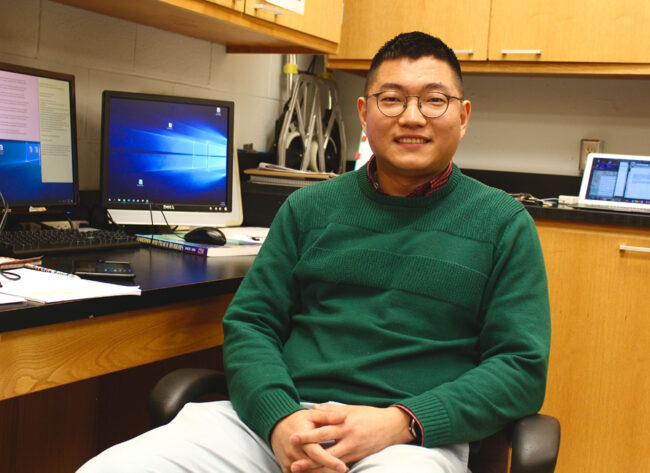
The result was PuzzleWalk, a free, spot-the-difference app that encourages physical activity within the ASD community by creating a correlation between playtime and daily steps. PuzzleWalk also uses behavior change techniques, which consist of action plans and psychological determinants, such as self-esteem and motivation, to alter health behavior.
The app prompts players to self-monitor their progress, gives rewards for progress made, and encourages players to set goals. After the course was completed, Lee enlisted the help of his mentor, Georgia Frey, and IU professors Patrick Shih, Scott Bellini, Donetta Cothran, and Jaroslaw Harezlak to seek funding to further develop the app.
The team was awarded an IU Collaborative Research Grant, which allowed for more research and development of the app’s visuals. In the future, Lee hopes the app’s target audience will encompass other groups, but for now improving the lifestyle of those on the spectrum is pivotal.
“Our force to make this all possible is solely for promotional purposes for this population. Our hope is to reach more individuals with autism and their families. That’s our goal.” Look for PuzzleWalk on Apple’s App Store and Google Play.


